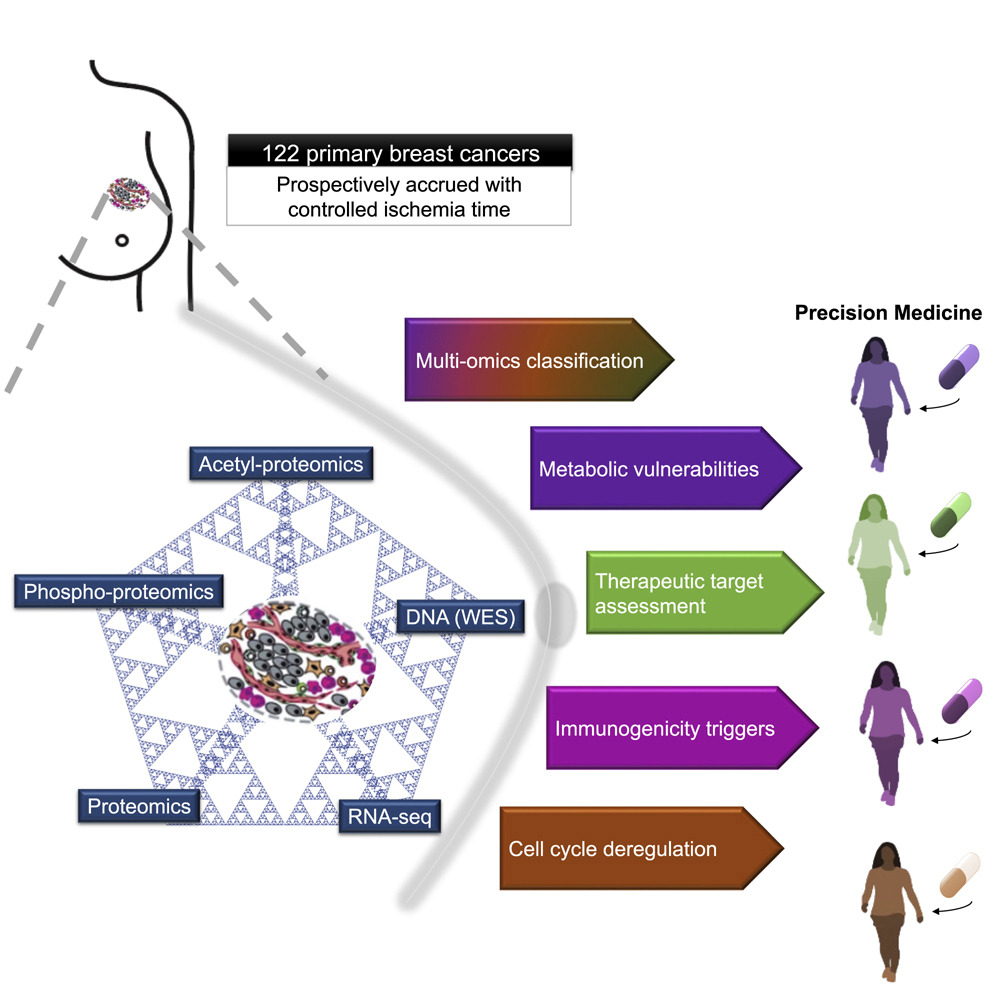Jurisdiction:
United States
Organ System:
Breast
Funding Organizations:
- Cancer Prevention and Research Institute of Texas, USA
- National Cancer Institute, USA
- Robert and Janice McNair Foundation, USA
- Susan G. Komen Foundation, USA
Research Organizations:
- Broad Institute of MIT and Harvard, USA
- Baylor College of Medicine, USA
- NYU Grossman School of Medicine, NYU
- Washington University in St. Louis, USA
- University of Miami Miller School of Medicine, USA
- Fred Hutchinson Cancer Research Center, USA
- National Cancer Institute, USA
Principal Investigators
:- Michael A Gillette
- Matthew J Ellis
- Steven A. Carr
- D.R. Mani
Publication:
External Links:
The integration of mass spectrometry-based proteomics with next-generation DNA and RNA sequencing profiles tumors more comprehensively. Here this “proteogenomics” approach was applied to 122 treatment-naive primary breast cancers accrued to preserve post-translational modifications, including protein phosphorylation and acetylation. Proteogenomics challenged standard breast cancer diagnoses, provided detailed analysis of the ERBB2 amplicon, defined tumor subsets that could benefit from immune checkpoint therapy, and allowed more accurate assessment of Rb status for prediction of CDK4/6 inhibitor responsiveness. Phosphoproteomics profiles uncovered novel associations between tumor suppressor loss and targetable kinases. Acetylproteome analysis highlighted acetylation on key nuclear proteins involved in the DNA damage response and revealed cross-talk between cytoplasmic and mitochondrial acetylation and metabolism. Our results underscore the potential of proteogenomics for clinical investigation of breast cancer through more accurate annotation of targetable pathways and biological features of this remarkably heterogeneous malignancy.

